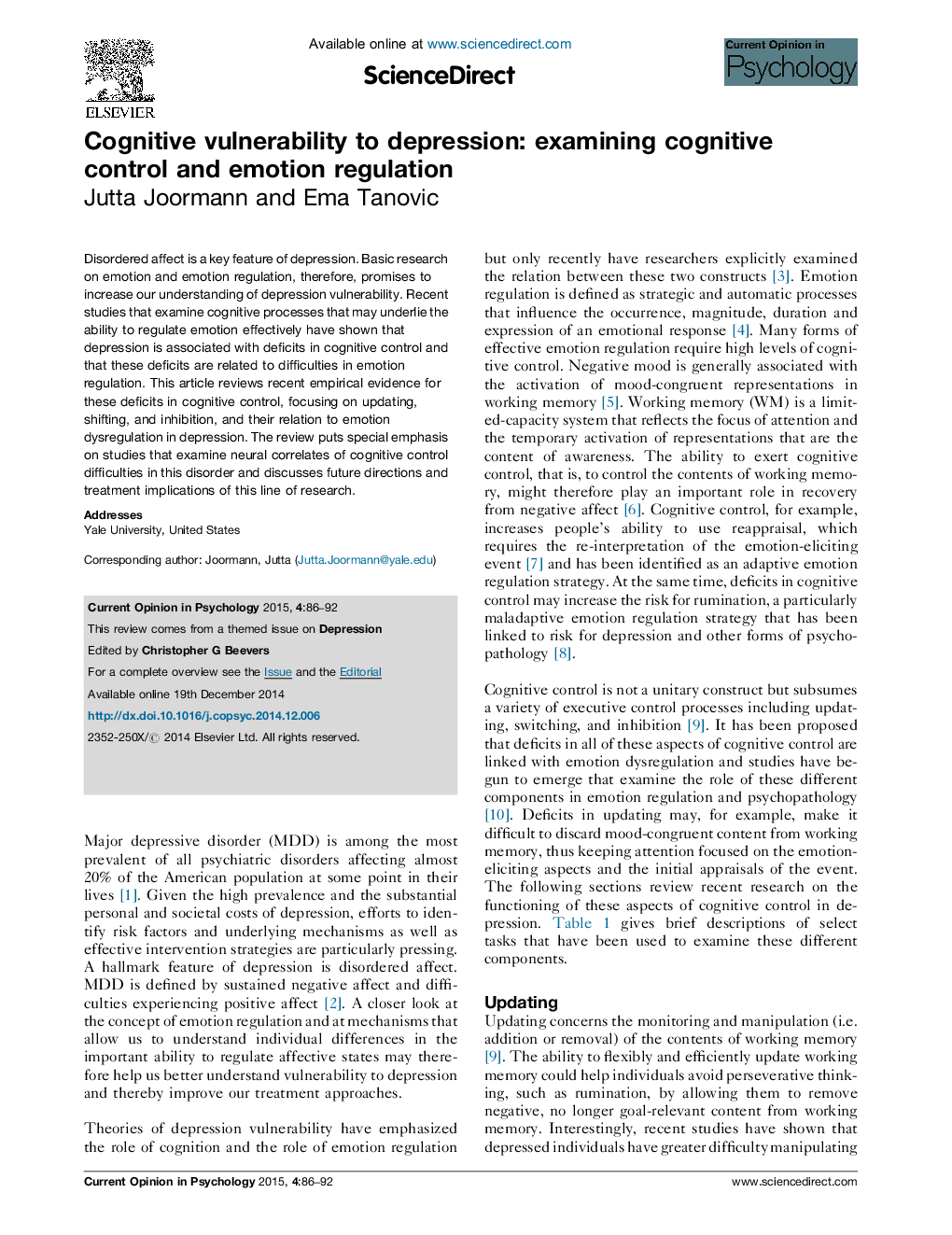| کد مقاله | کد نشریه | سال انتشار | مقاله انگلیسی | نسخه تمام متن |
|---|---|---|---|---|
| 879491 | 1471325 | 2015 | 7 صفحه PDF | دانلود رایگان |
• Depression is characterized by disordered affect and difficulties in emotion regulation.
• We examine cognitive processes that may underlie emotion dysregulation and may therefore help us understand depression vulnerability.
• Individual differences in cognitive control have been proposed to underlie emotion dysregulation.
• Components of cognitive control include updating, shifting, and inhibition.
• Depressed people show deficits in all of these aspects of cognitive control.
Disordered affect is a key feature of depression. Basic research on emotion and emotion regulation, therefore, promises to increase our understanding of depression vulnerability. Recent studies that examine cognitive processes that may underlie the ability to regulate emotion effectively have shown that depression is associated with deficits in cognitive control and that these deficits are related to difficulties in emotion regulation. This article reviews recent empirical evidence for these deficits in cognitive control, focusing on updating, shifting, and inhibition, and their relation to emotion dysregulation in depression. The review puts special emphasis on studies that examine neural correlates of cognitive control difficulties in this disorder and discusses future directions and treatment implications of this line of research.
Journal: Current Opinion in Psychology - Volume 4, August 2015, Pages 86–92
